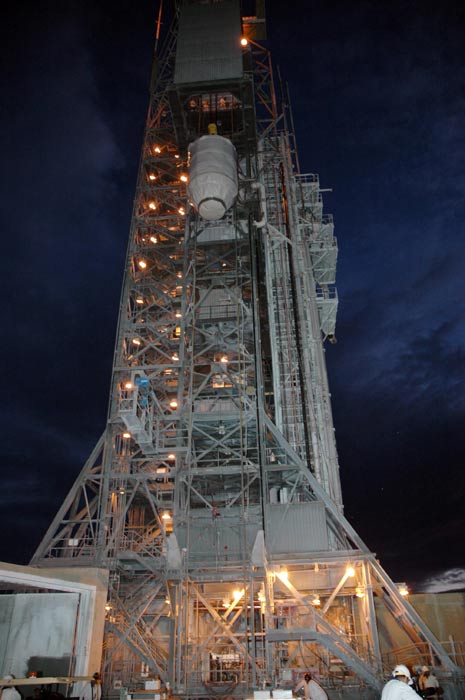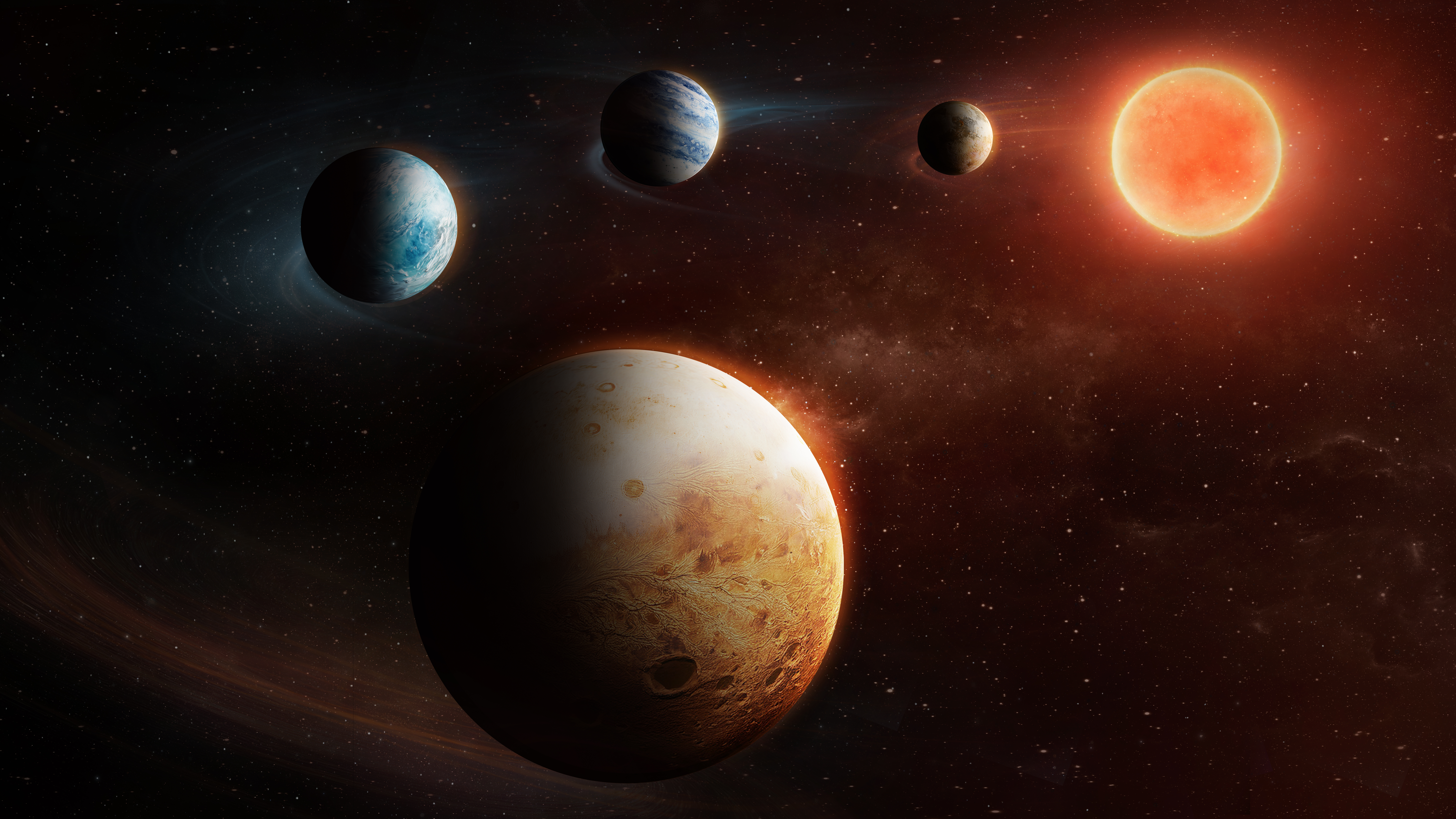NASA Returns Asteroid Probe to Launch Pad

Breaking space news, the latest updates on rocket launches, skywatching events and more!
You are now subscribed
Your newsletter sign-up was successful
Want to add more newsletters?

Delivered daily
Daily Newsletter
Breaking space news, the latest updates on rocket launches, skywatching events and more!

Once a month
Watch This Space
Sign up to our monthly entertainment newsletter to keep up with all our coverage of the latest sci-fi and space movies, tv shows, games and books.

Once a week
Night Sky This Week
Discover this week's must-see night sky events, moon phases, and stunning astrophotos. Sign up for our skywatching newsletter and explore the universe with us!

Twice a month
Strange New Words
Space.com's Sci-Fi Reader's Club. Read a sci-fi short story every month and join a virtual community of fellow science fiction fans!
Abeleaguered NASA probe bound for the solar system's two largest space rocksreturned to its Florida launch pad Tuesday after two months of delay.
Engineershoisted the space agency's Dawn asteroid probe atop its Delta 2 rocket at theCape Canaveral Air Force Station following a series oflaunch delays and scrubs earlier this summer.
"Fromhere, the only way to go is up," said Dawn project manager Keyur Patel, ofNASA's Jet Propulsion Laboratory in Pasadena, California, in a statement."We are looking forward to putting some space between Dawn and MotherEarth and making some space history."
Dawn isslated to begin its plannedeight-year mission to the asteroids Vesta and Ceres with a 7:25 a.m. EDT(1125 GMT) launch on Sept. 26.
Vesta is abright, dense asteroid, while the spherical Ceres is large enough to beconsidered a dwarf planet. Dawn researchers hope that by studying the twospace rocks, they will better understand how planets formed in the earlysolar system.
Earlierattempts to launch Dawn in July were plagued by bad weather, booster glitchesand difficulties in arranging air and ship-based tracking systems for theplanned liftoff.
Missionmanagers opted to postpone Dawn's mission until September, after the launch of NASA'sPhoenix Mars Lander. The delay is expected to add about $25 million toDawn's $449 million mission cost, NASA has said.
Breaking space news, the latest updates on rocket launches, skywatching events and more!
NASA alsocanceled Dawn's mission outright in March 2006, but reinstated the asteroidexpedition a few weeks later after reevaluating budget and technical hurdles.
Dawn isslated to rendezvous and orbit Vesta in 2011 before heading off for a February2015 appointment with Ceres. Both asteroids sit in the Asteroid Belt that runsbetween the orbits of Mars and Jupiter.
NASA mustlaunch Dawn by late October, after which its space rocktargets will begin moving away from one another in their respective orbits.After Dawn's 2007 launch window, Ceres and Vesta won't be near enough to oneanother for about 15 years, mission managers have said.
- VIDEO: The Asteroid Paradox
- GALLERY: Asteroids
- How NASA's Dawn Spacecraft Will Explore Solar System's Origin

Tariq is the award-winning Editor-in-Chief of Space.com and joined the team in 2001. He covers human spaceflight, as well as skywatching and entertainment. He became Space.com's Editor-in-Chief in 2019. Before joining Space.com, Tariq was a staff reporter for The Los Angeles Times covering education and city beats in La Habra, Fullerton and Huntington Beach. He's a recipient of the 2022 Harry Kolcum Award for excellence in space reporting and the 2025 Space Pioneer Award from the National Space Society. He is an Eagle Scout and Space Camp alum with journalism degrees from the USC and NYU. You can find Tariq at Space.com and as the co-host to the This Week In Space podcast on the TWiT network. To see his latest project, you can follow Tariq on Twitter @tariqjmalik.
